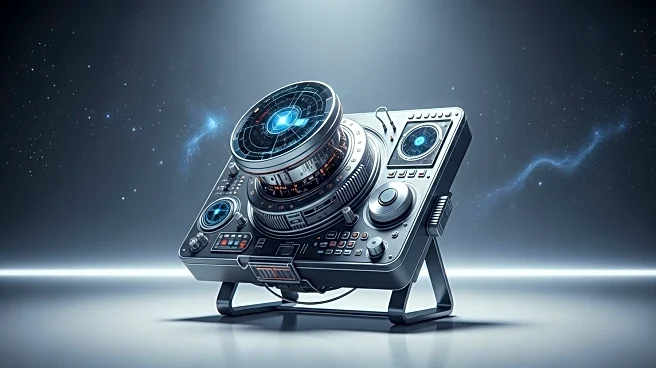What is the story about?
What's Happening?
NASA's Goddard Space Flight Center in Greenbelt, Maryland, has issued a request for proposals (RFP) for a Phase A study of the Space Weather Geostationary PHOtospheric Magnetograph Imager (PHOMI) instrument. This instrument is intended to fly on the National Oceanic and Atmospheric Administration (NOAA) Space Weather Geostationary (SW GEO) Series satellites. The PHOMI instrument is designed to provide line-of-sight measurements of the solar photospheric magnetic field, which are crucial for modeling solar wind velocity, density, and magnetic polarity. The RFP seeks to develop a design concept, cost, schedule, and risk assessments to support eventual flight development. Contractors are expected to deliver a sensor design concept that meets baseline specifications, perform trade studies, technical analyses, and provide a notional development schedule, among other deliverables.
Why It's Important?
The development of the PHOMI instrument is significant for enhancing the understanding and prediction of space weather phenomena, which can have profound impacts on satellite operations, communication systems, and power grids on Earth. By improving the accuracy of solar wind modeling, the instrument could help mitigate the risks associated with solar storms and other space weather events. This initiative reflects NASA's ongoing commitment to advancing space weather monitoring capabilities, which are essential for protecting technological infrastructure and ensuring the reliability of critical services.
What's Next?
Following the Phase A study, NASA anticipates that the selected contractor will be ready to enter a System Requirements Review approximately one month after a potential Implementation contract award. This will be followed by a Preliminary Design Review. The government may also consider a pre-priced option for up to six additional months of performance to address technical, cost, and schedule risks, advancing the study to a Preliminary Design Review level of readiness.
Beyond the Headlines
The PHOMI instrument's development could lead to advancements in sensor technology and data analysis methods, potentially influencing future space weather monitoring systems. The collaboration between NASA and industry partners may also foster innovation and drive technological progress in the field of space weather research.















